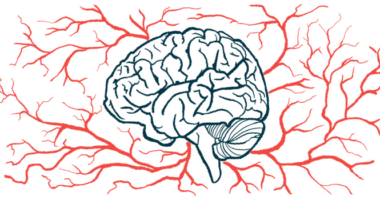First Patient Dosed in Gene Therapy Trial for LOPD

Spark Therapeutics has dosed the first patient in the Phase 1/2 RESOLUTE clinical trial of SPK-3006, an experimental gene therapy for people with late-onset Pompe disease (LOPD).
“Dosing the first participant in the Phase 1/2 RESOLUTE trial of investigational SPK-3006 for late-onset Pompe disease is an important milestone and first step to what we hope will ultimately allow us to bring an innovative gene therapy to these patients,” Gallia G. Levy, MD, PhD, Spark’s chief medical officer, said in a press release.
“We are deeply appreciative of the ongoing collaboration of the Pompe disease community as we continue to enroll participants,” she added.
Taking place in the U.S. and Europe, the trial (NCT04093349) will evaluate the safety, tolerability, and effectiveness of a single intravenous (into-the-vein) infusion of SPK-3006 at increasing doses among 20 adults receiving enzyme replacement therapy for at least the past two years.
Following a pause in enrollment due to the COVID-19 pandemic, recruitment is already open at some study sites in the U.S. More information is available here.
“We are honored to have the first participant dosed in this clinical trial, which we hope will lead us to introduce a novel therapeutic option for patients living with late-onset Pompe disease,” said the trial’s principal investigator Tahseen Mozaffar, MD, from University of California Irvine Health.
SPK-3006 delivers a functional version of the GAA gene to a patient’s liver using a harmless adeno-associated virus, or AAV. This gene carries the instructions for the acid alpha-glucosidase (GAA) enzyme. GAA is needed to turn the complex sugar glycogen into the simpler glucose, which cells use as an energy source. In people with Pompe, GAA deficiency results in toxic buildup of glycogen inside cells, affecting primarily limb and heart muscles.
The RESOLUTE trial will assess the occurrence of any immune responses against either the AAV vector or the therapeutic GAA gene, as well as the number of adverse side effects.
SPK-3006 reduced the buildup of glycogen in mice, leading to improved heart, respiratory, and muscle functions, as well as longer lifespan than untreated mice. A single injection of SPK-3006 into non-human primates resulted in dose-dependent increases of GAA in the blood, without treatment-related toxicities after at least six months.
“The International Pompe Association has been proud to collaborate with Spark Therapeutics to enhance the Pompe disease community’s understanding of gene therapy research,” said Tiffany House, chairman of the association’s board.
“We look forward to the progress in the Phase 1/2 RESOLUTE trial,” she said, “as well as the ongoing work aimed at developing gene therapies that have the potential to help individuals living with genetic diseases.”





